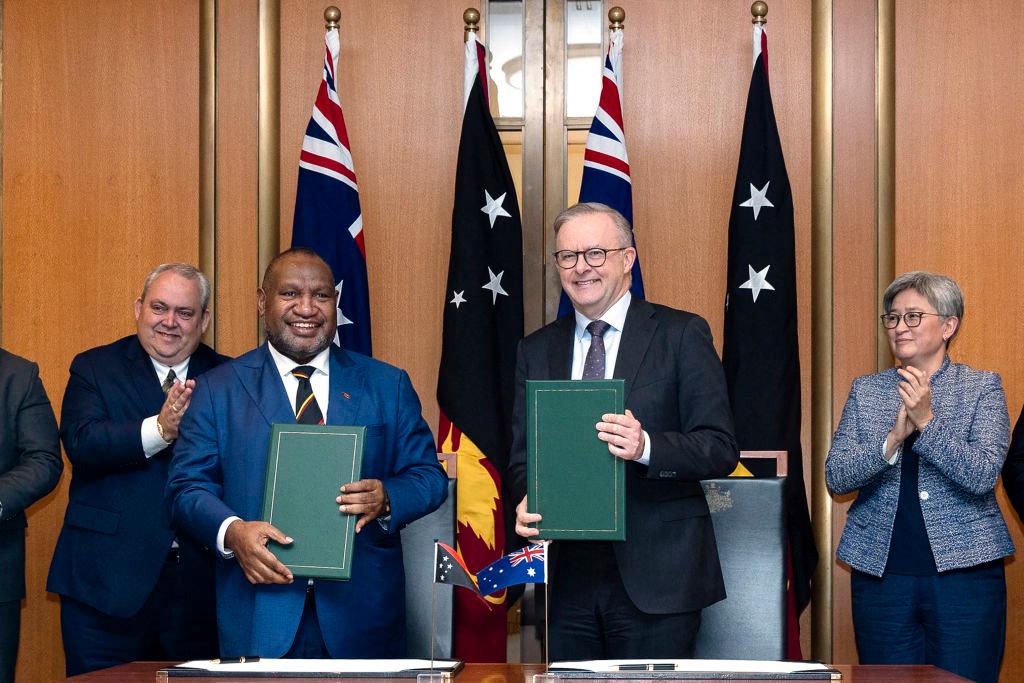Papua New Guinea’s Prime Minister James Marape begins an official visit to Australia today, during which he will address both houses of parliament—the first in-person address by a foreign leader since 2020.
He will also have one-on-one talks with Australian Prime Minister Anthony Albanese, building on the Bilateral Security Agreement signed last year, and address security and economic cooperation, infrastructure, and “deepening people-to-people links.”





